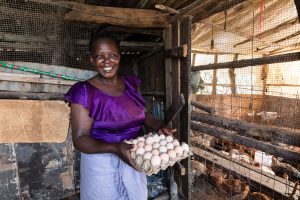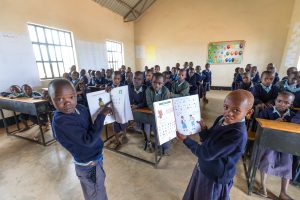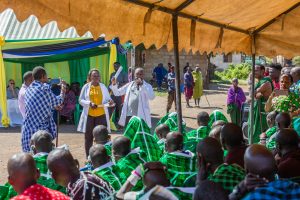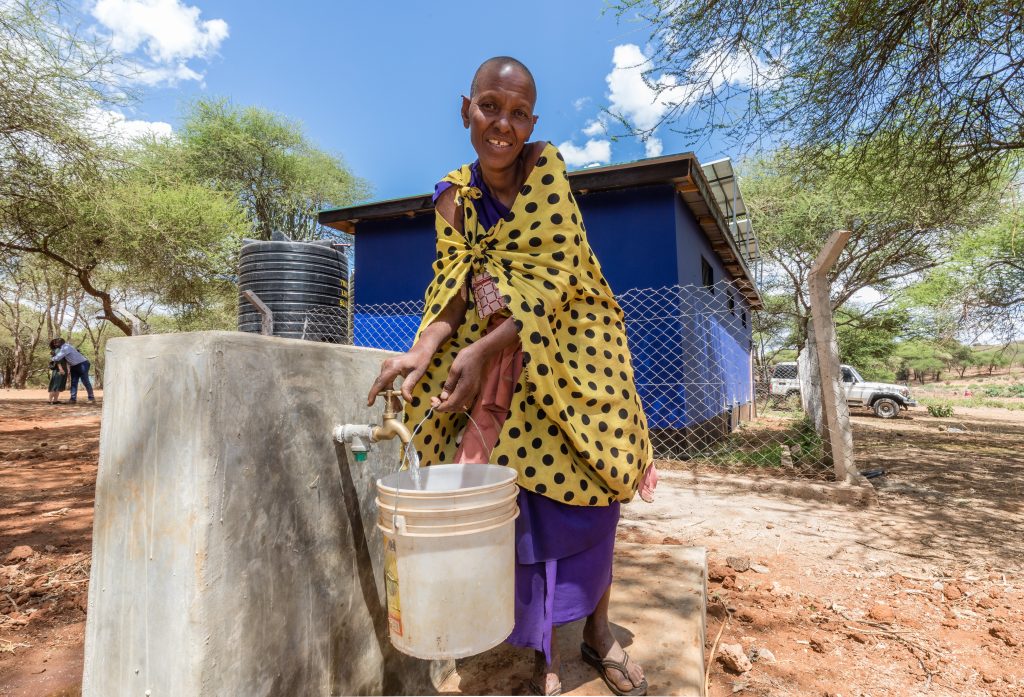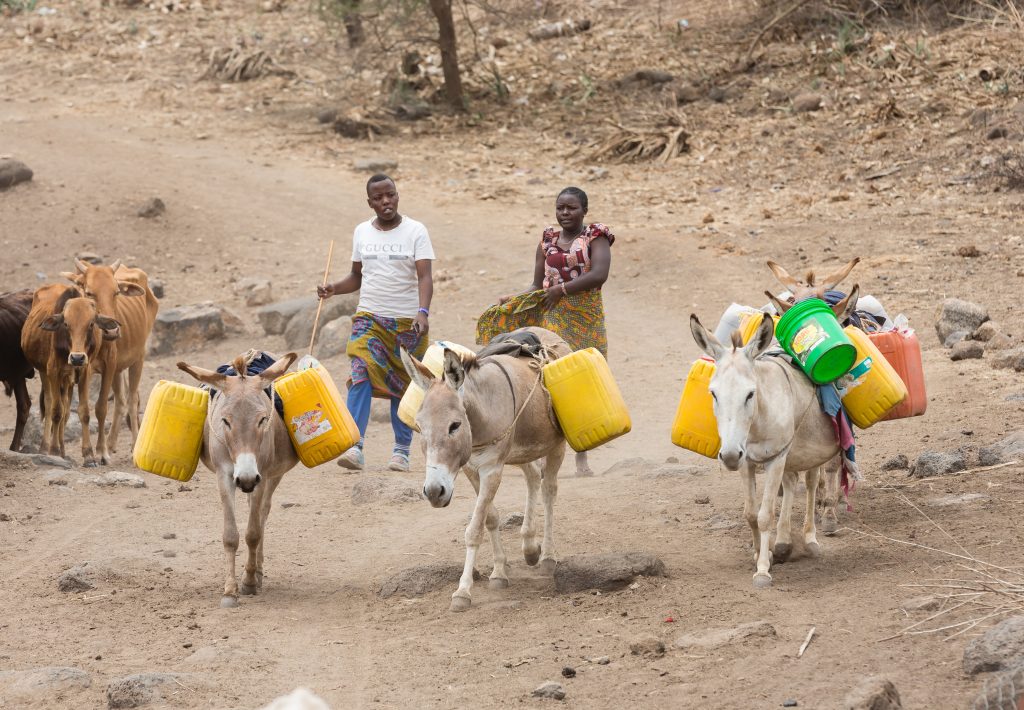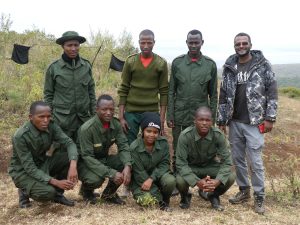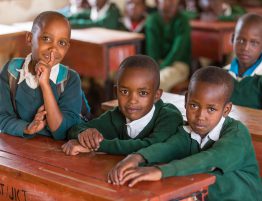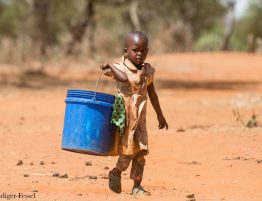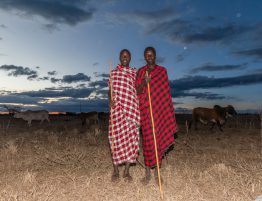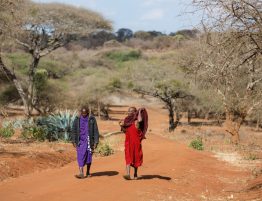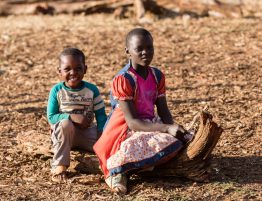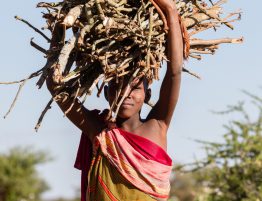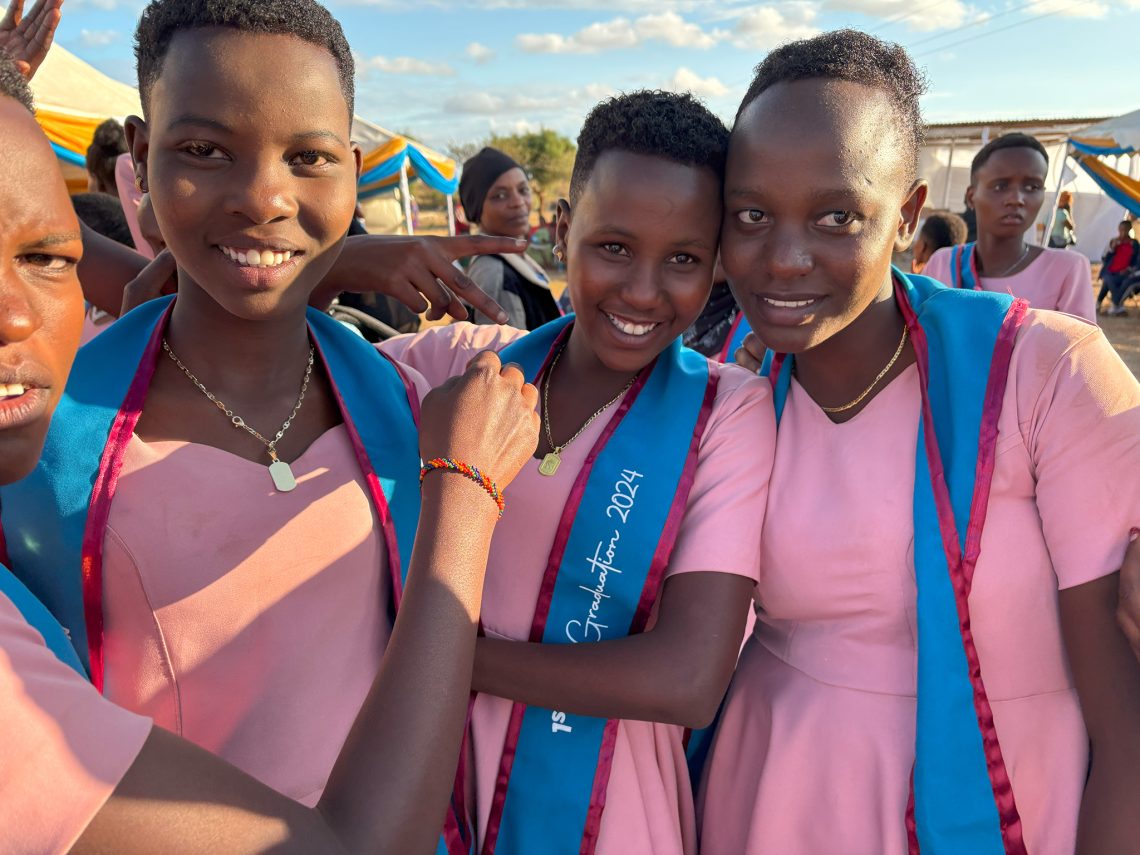
Training centre for teenage girls – Our latest project
Our Tanzanian partner organisation ECLAT came up with the idea of focusing part of the project work on teenage girls who drop out of school without any formal qualification and who would then immediately be forced into marriage in traditional Maasai society. In October 2024, we celebrated the completion of the two-year training programme together with the first girls from the pilot phase. It was a moving celebration for the girls and for us. Philomena Kiroya and Catherine Maguzu, heads of ECLAT’s women’s work, write about it:
| ‘The young girls who graduated after two years had come without hope, fearful and desperate, but through their progression they have learnt the strength that lies within them and that they have the opportunity to be role models in their society after having contributed socially, economically and spiritually. They now know that a woman also has a secure place in this dynamic world.’ |
We are delighted that we were able to start building our own training centre in May 2024 thanks to funding from the BMZ (Federal Ministry for Economic Cooperation and Development) and a foundation.
Greeting from Minister Herbert Reul, patron of upendo

Dear members, supporters and friends of upendo,
The year 2024 was a very special one for your association, as you celebrated your 10th anniversary. I have been able to accompany your work as patron for many years and it was a great pleasure for me to personally welcome your CEO, Dr. Heimbach, and some Tanzanian guests to my ministry in autumn 2024.
During the meeting, I learnt what had been achieved for the people of Tanzania in 2024: Once again, many schools have been renovated or new schools have been built and more and more families are sending their children to school. Family planning counselling is also becoming more widely accepted and more and more girls and women are given the opportunity to learn and build their own livelihoods. I am particularly pleased that the first 22 young women have now completed the two-year vocational course at the ECLAT Development Foundation’s training centre and can now set up their own businesses with their initial equipment. This opens up completely new perspectives. Your work is not only encouraging, it is a bridge of solidarity!
Dear friends of upendo, dear Dr. Heimbach, your commitment shows great empathy for Tanzania and its people. It makes me proud to be able to support you as a patron.
Sincerely
Yours
Herbert Reul MdL (Member of the State Parliament)
upendo
upendo was founded in 2014 with the aim of promoting community development in remote and disadvantaged societies. The partner organisation is the ECLAT Development Foundation, in which local people and those familiar with their culture help to develop their society. The Board of Directors consists of Dr. Fred Heimbach (Chairman), Matthias Schmid (Deputy Chairman) and Joachim Buchmüller (Treasurer).
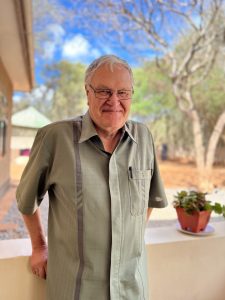
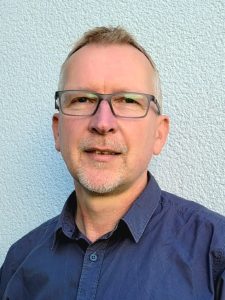
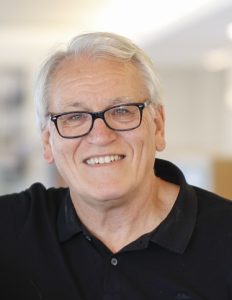
WHERE does upendo work?
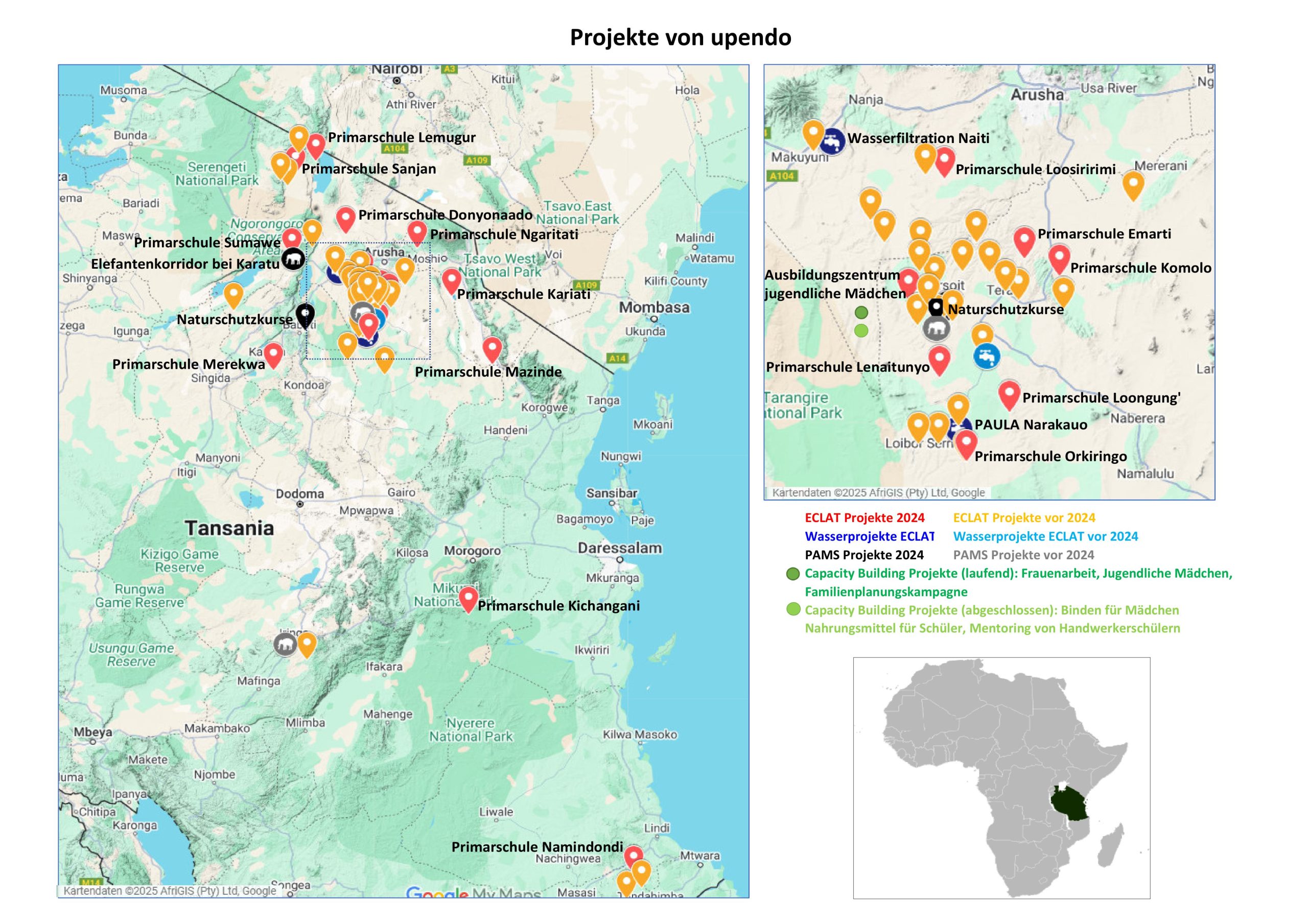
Insights into ECLAT’s and upendo’s development projects:
A personal experience report
I have followed the work of upendo in reports in the Letter to Friends for many years. Full of curiosity and for the first time in 2023, I attended an information event organised by upendo in Leichlingen. There, its chairman, Dr. Fred Heimbach, together with distinguished guests from Tanzania, reported on completed and ongoing support projects and the related challenges. I was immediately hooked. The warmth and mutual trust from the many years of cooperation between upendo and the partner organisation ECLAT, represented by its Chairman Peter Toima, were immediately palpable in the room.
From 3 to 8 October 2024, I then had the opportunity to see the cooperation with my own eyes on site. Right at the beginning of my trip, a major event was on the agenda. The first year of the ECLAT Young Women project celebrated its graduation. What may seem like a rather private event in Germany turned out to be a grand public celebration with numerous high-ranking government representatives. A member of parliament, Mrs Asia Halamga, had travelled all the way from the distant capital Dodoma. This may illustrate the great importance attached to the graduation of 22 young women from a training centre in this disadvantaged region. I was also able to take part in this extremely moving and very important event for the Maasai.
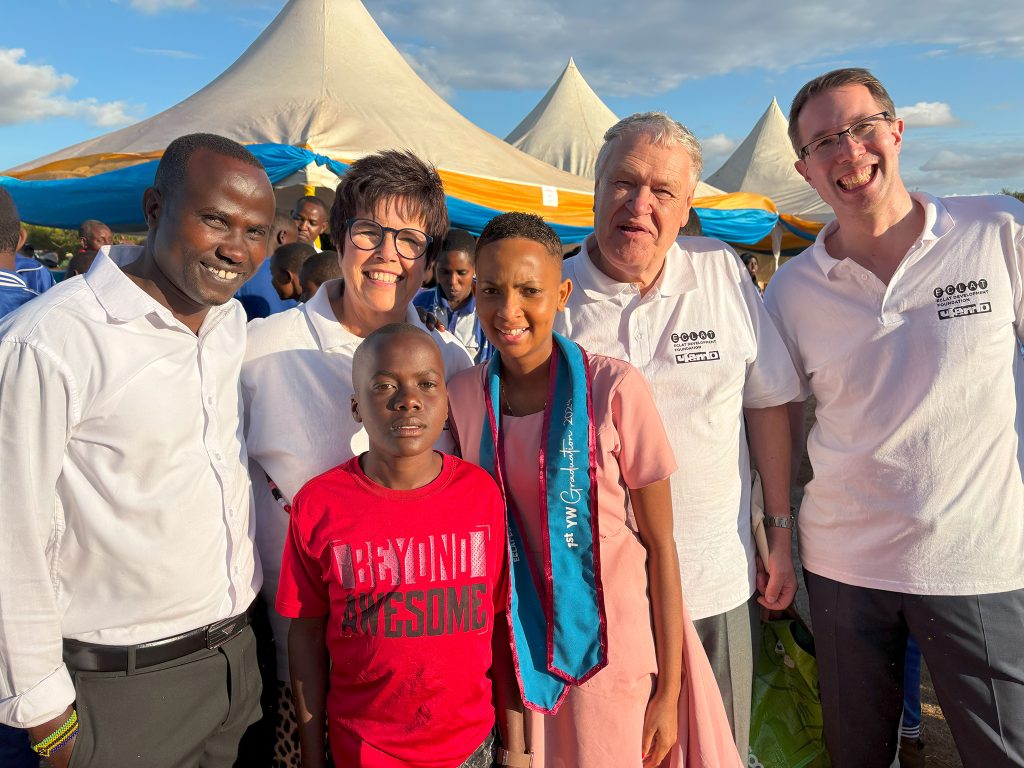
As I have learnt in the meantime, women have traditionally had few opportunities for development in the Maasai, as they are married off as young women or even girls. Early pregnancies and a high level of dependency on their husbands – who often live with several wives – are the result. The high number of children, together with gradually improving medical care, is leading to a rapidly growing population. However, the climatic conditions with the sometimes very poor soil and the traditional livestock farming of the Maasai do not provide a sustainable basis for this. Leading representatives of the Maasai have also recognised this critical situation. There is no way around change.
The ECLAT Young Women Training Centre, newly established by ECLAT together with , is an important building block for this change. Here, young women – or rather teenage girls – receive vocational training in one of two areas: Food and Beverage Production and Design Clothing and Tailoring. This enables them to earn their own money later on and thus contribute to the family income. The target group are teenage girls who (for a variety of reasons) had to end their school career early, so that under normal circumstances they would have been married off immediately. The ECLAT Young Women Training Centre therefore makes it possible for the teenage girls to complete an additional two years of training, which contributes significantly to their independence and self-confidence.
The promotion of women was also the focus of other programme items. For example, we visited a women’s group in a village near Sukuru that has set up a chicken farm with the support of ECLAT. All steps, such as the construction of the barn, the feeding and also the economic aspects, are planned, decided and implemented jointly by the group. The women’s group presented their successes to us with obvious pride.
Education is the basis for further development and so I was delighted to be able to attend the handover of a newly built primary school, the Ngaritati Primary School. This event was also celebrated with lots of music, dancing and speeches by various local and national government representatives.
I am infinitely grateful that I was able to have these and many other experiences in Tanzania. My curiosity was rewarded handsomely and I was able to experience how necessary change can be shaped positively and with a lot of joy. My wife and I will be happy to do all we can together in the future, as the challenges still to be overcome are undoubtedly enormous. However, the long-standing and trusting cooperation between and ECLAT provides a solid basis for tackling these challenges with expertise, empathy and mutual respect.
Dr. Karsten Faulhaber
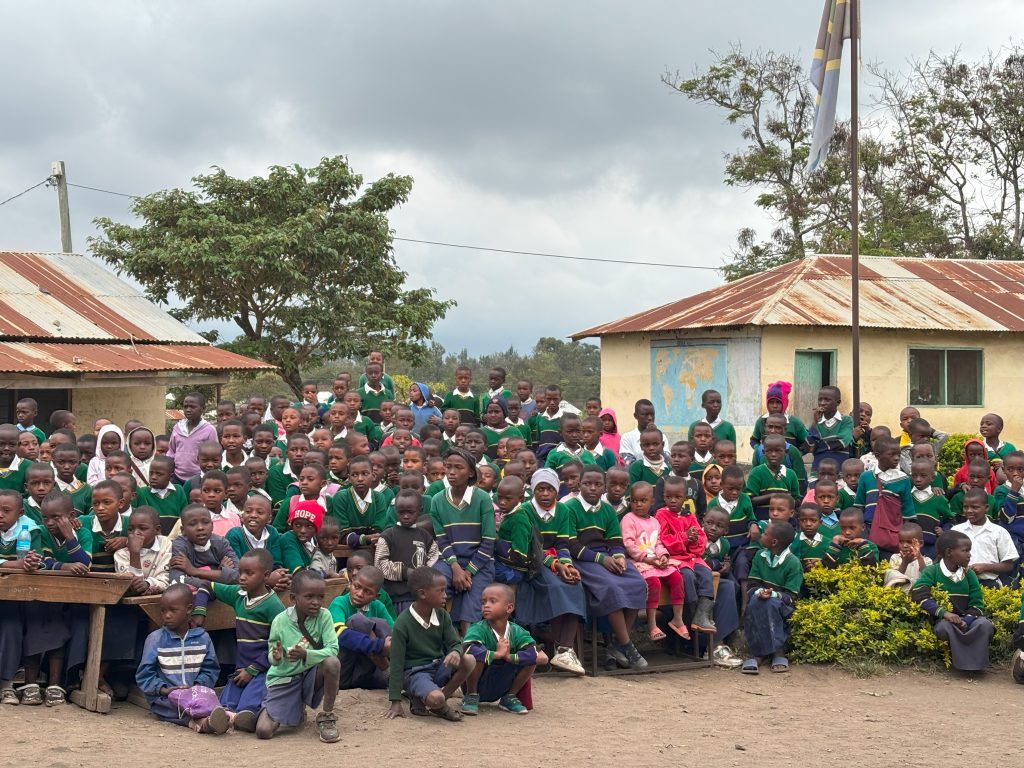
Vocational training for teenage girls
On 5 October 2024, ECLAT and celebrated the graduation of the teenage girls at the ECLAT training centre for the first time. It was a truly emotional graduation ceremony for the very first group involved in the pilot project, a moving celebration with 22 teenage girls who had developed into young women during their two years of training. And it was a pleasure to see them. Their parents were also there, including even many fathers. The graduates proudly presented their various products such as home-made food and clothing. In addition to the parents, the community and pupils from the neighbouring secondary school, various high-ranking guests attended the event. The importance of education was emphasised in the speeches and parents were urged not to force girls into early marriages but to help them get an education. ECLAT and were thanked for their continuous support and the outstanding leadership role of Philomena Kiroya and Catherine Maguzu in empowering women in the Maasai society was underlined. Finally, the guests of honour handed the young women their graduation certificates in Food and Beverage Production and Design Clothing and Tailoring and gave each of them an initial kit to start out on their own.
The first buildings of the new training centre have already been completed, such as the residential buildings for the teachers and the dormitories for the girls. We are grateful to the BMZ (German Federal Ministry for Economic Cooperation and Development) and a foundation for providing the funds for the project. The building with the classrooms and the canteen is still under construction, with more buildings to follow. Part of the training will continue to take place provisionally in the ECLAT women’s centre for the time being. The teachers and the headmistress have already been selected and recruited by ECLAT. They have undergone various qualification courses in preparation for the start of the new class in January 2025. ECLAT has also organised information campaigns to encourage the community to register teenage girls for the new training course at the beginning of 2025.
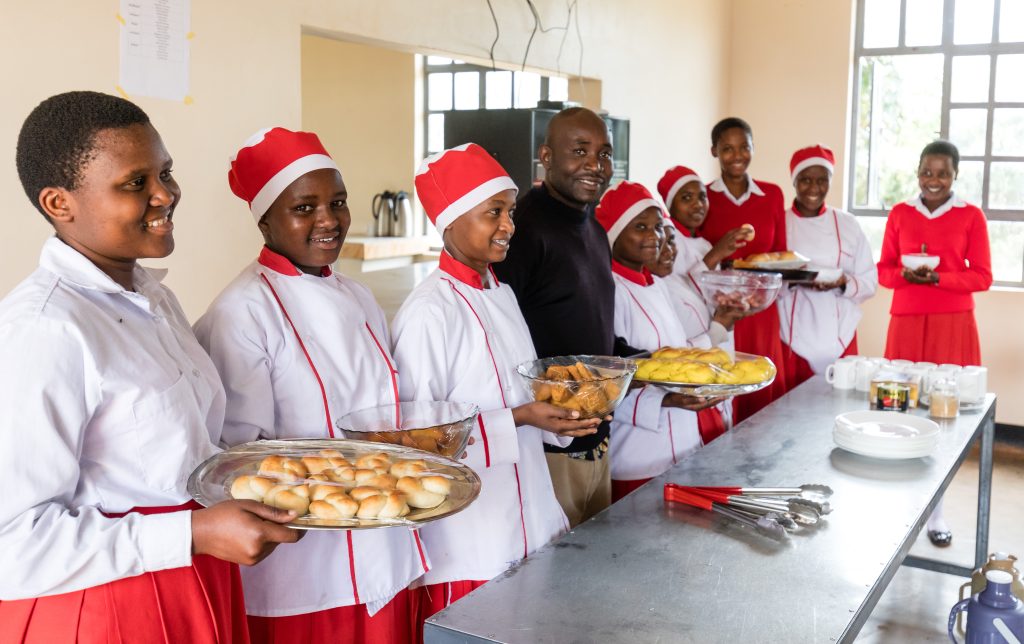
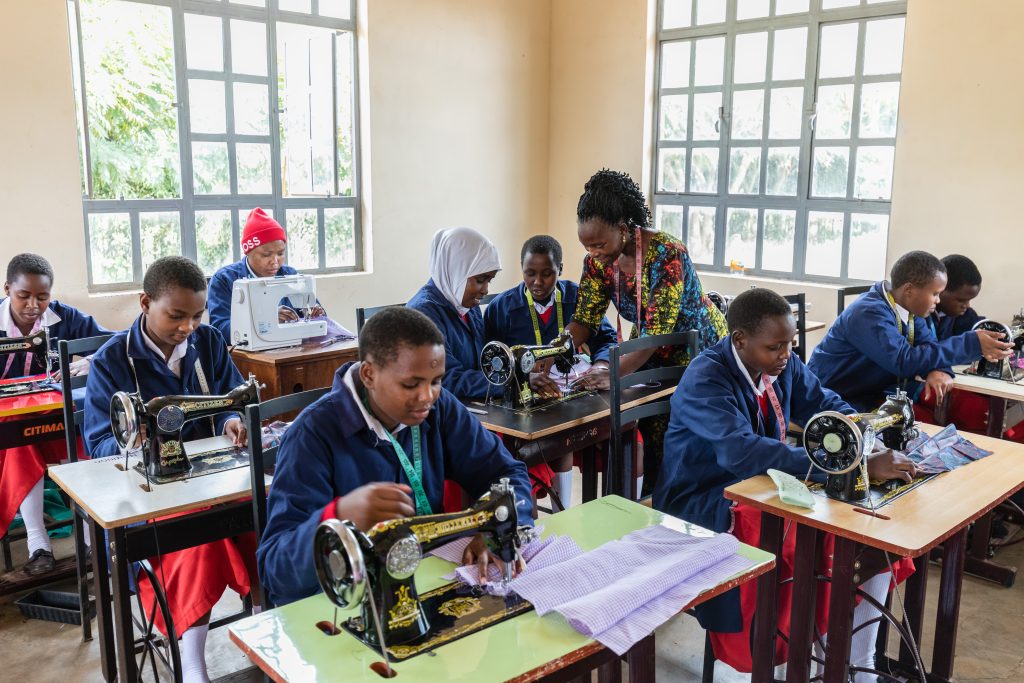
On the occasion of her visit in September 2024 (see page 12), Queen Cuthbert Sendiga, Regional Commissioner of the Manyara Region (comparable to the Prime Minister of a federal state in Germany), thanked and all our supporters for our commitment in Tanzania:
Thanks from the Regional Commissioner of the Manyara Region
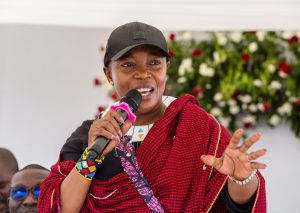
Regional Commissioner Manyara Region
“On behalf of Tanzanian Government, I express deep gratitude to the German government and stakeholders for their endless support of Tanzanian development projects, especially in disadvantaged rural areas such as those of the Maasai of Simanjiro District. We greatly value the significant contributions made through the projects aimed at improving the standard of lives of Tanzanians.
It’s my hope, our partnership will continue to endure and be sustainable for the benefit of the people of our two nations, particularly in fostering development in key sectors such as Health, Education, Water, and Women Empowerment.“
Women’s work
ECLAT’s work with women continued to expand in 2024. ECLAT accompanies many Maasai women who live with their children dispersed in their bomas. Over the years, more than 50 women’s groups have been founded. At their weekly meetings, topics relating to everyday life and joint projects are discussed. In addition to regular training sessions in villages and at ECLAT’s women’s centre, they receive intensive training in how to generate a livelihood. Some groups have learnt to raise chicks and sell them as chickens, which involves hygiene measures and feeding. Members can buy the chickens more inexpensively, which motivates them to generate their own income. Other groups have been trained in the production and sale of liquid and solid soaps. The co-operation promotes the learning of economic basics. Some of the groups are now so successful that they are able to generate a sustainable income.
Our commitment to school education
In the eleventh year of its existence, was once again able to promote school education through smaller and larger projects in disadvantaged and remote areas of Tanzania. Together with our Tanzanian partners from ECLAT, we were active in 16 primary schools in 2024. In addition to the urgent renovation of old, run-down schools, a number of schools were expanded or new ones founded. In total, we have built around 50 primary schools in Tanzania and helped many thousands of children to receive a school education. Despite these school projects, the number of pupils in the classrooms has risen considerably in recent years. This shows that fathers and mothers in rural Tanzania are increasingly recognising the value of education; at the same time, however, the figures also show how important this area of commitment continues to be. We always coordinate all our school projects closely with the relevant district government and hand over the completed projects to them.
Family planning
Since 2022, our partner organisation ECLAT has been conducting campaigns on the impact of family planning in the villages in order to convey in particular to the men that although having many children can be a desirable goal, children must also be cared for and should have the chance of education and a decent life. In order to assess the acceptance of the campaigns of recent years, ECLAT carried out an evaluation in some villages last year. It became clear that the topic of family planning has resonated with the population and that many already recognise the necessity of family planning for the future of Maasai society. This evaluation also enabled ECLAT to derive improvements for further campaigns in the coming year.
Water projects
Our PAULA water filtration systems in the villages of Narakauo and Naiti have now been in operation for several years and only require assistance from ECLAT from time to time. However, as there are only a few reservoirs in Simanjiro and the neighbouring districts and most of the villages are far away from them, now wants to drill more groundwater wells in places that are particularly far away from water points. In Donyonaado, a particularly remote and dry village in the Monduli district, we were able to drill a fortunately productive borehole over 120 metres deep at the end of 2024, from which potable water will be available to the primary school pupils and the population in 2025.
Nature and environmental protection with the PAMS Foundation
upendo has also supported the PAMS Foundation in its environmental education programme in schools from the very beginning. Their vision is a world in which wildlife and national parks are protected, while the neighbouring population lives safely and understands the value of nature. As wild animals threaten the livelihoods of local residents, the willingness to protect nature is low. Environmental education of teenagers in schools around Tarangire National Park is crucial to teach the next generation about the importance of wildlife and conservation of natural resources. The protection of the elephant corridor at the Ngorongoro Crater was also continued in order to minimise conflicts between humans and elephants on their migration routes.
Income from upendo in 2024
upendo would like to thank all those who support our work in whatever form, also on behalf of the people concerned in Tanzania. Special thanks for the support provided for upendo in accordance with the 2024 cash report go to the Circle of Friends and the following organisations:
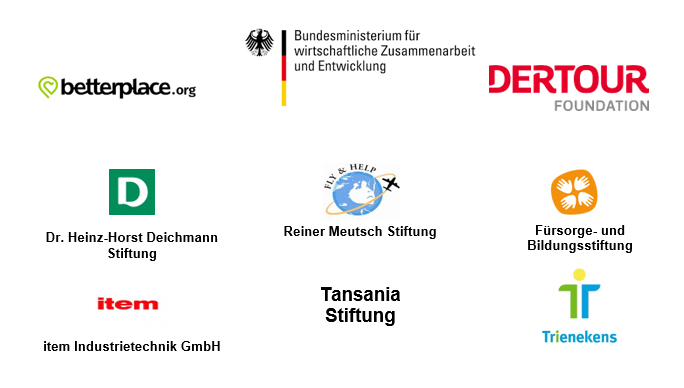
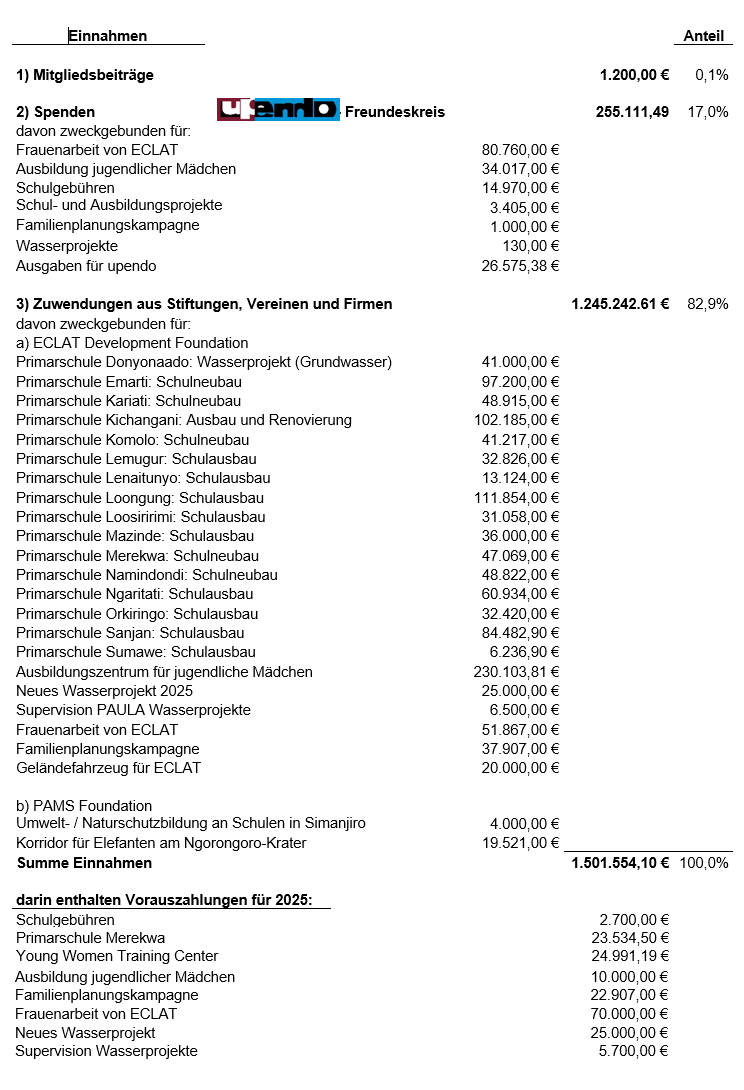
Expenditure of upendo in 2024
Upendo had the following expenses for the realisation of the projects in Tanzania according to the cash report 2024:
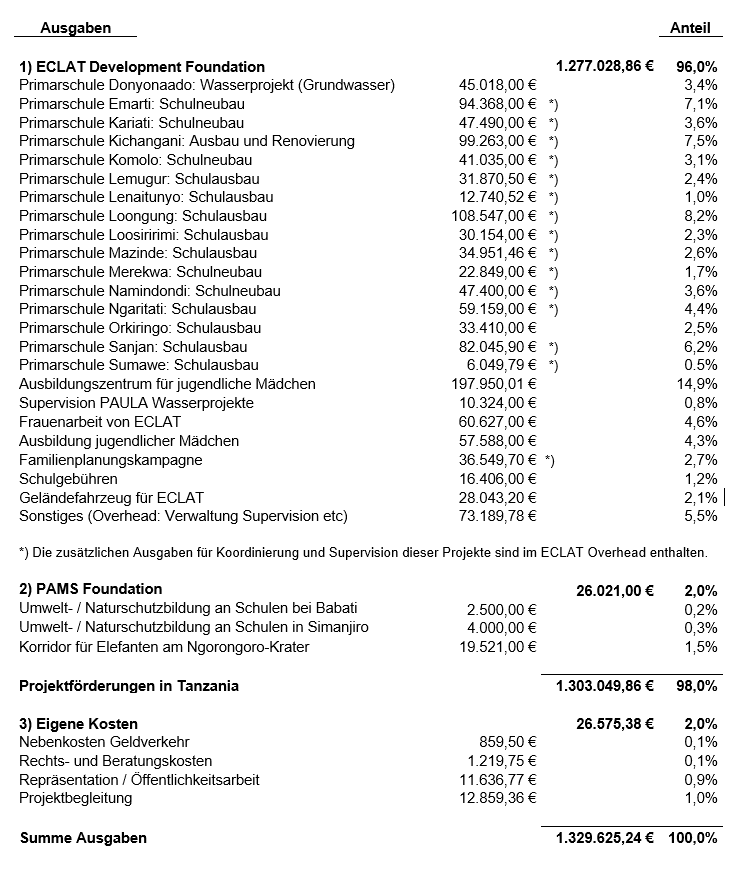
Transparency is a key issue for upendo. Our annual cash reports are subject to an external audit by the independent external tax consultancy JC Junga Consulting GmbH in Solingen. The records on which the 2024 upendo annual cash report is based were also examined by the same tax consultancy and checked to ensure they were compliant. In a letter dated 17 February 2025, the tax consultancy firm JC Junga Consulting GmbH certified the accuracy of upendo`s cash report for 2024, which is also published on our website with details of the cash balance at the beginning and end of 2024.
High-ranking Tanzanian politician visiting us
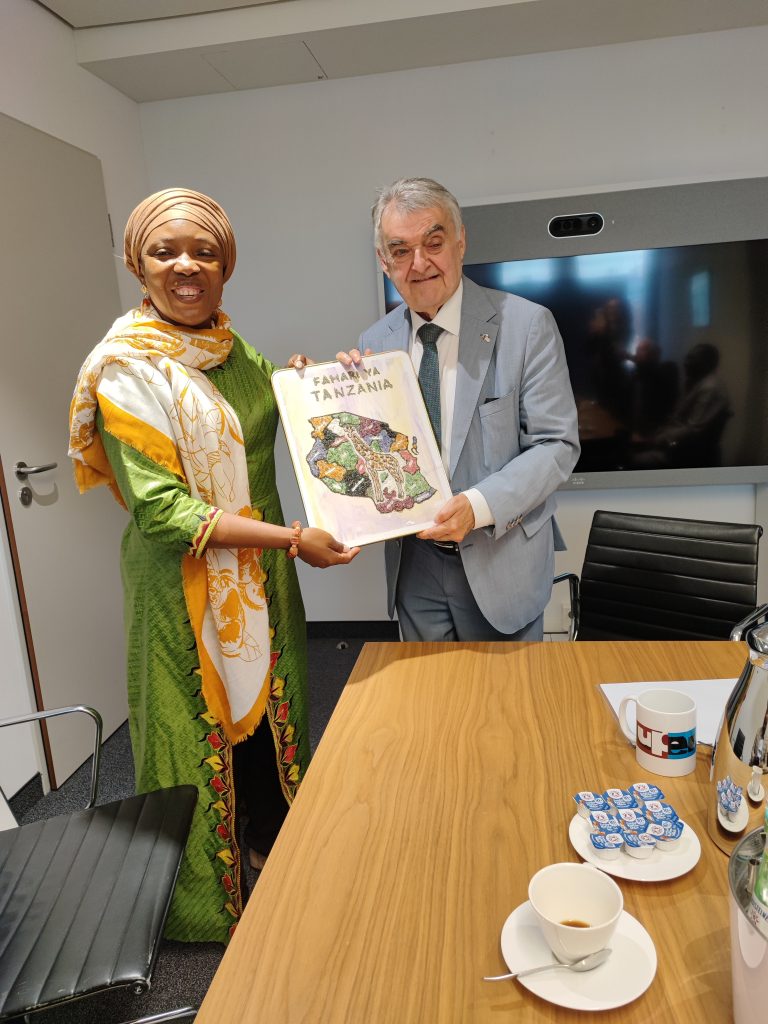
At the beginning of September 2024, we welcomed a high-ranking political visitor from Tanzania. Queen Cuthbert Sendiga, Regional Commissioner of the Manyara region (comparable to the Prime Minister of a federal state in Germany), accepted the invitation of upendo and spent a week in Germany, accompanied by her husband and Toima Kiroya, the head of ECLAT. Her primary goal was to express her appreciation of the joint work of ECLAT and upendo, to meet German sponsors and donors of our work and to express the gratitude of the Tanzanian government to them. In addition to visits to various foundations and companies, the BMZ (Federal Ministry for Economic Cooperation and Development) and the parish in Solingen-Aufderhöhe, the programme also included a meeting with Herbert Reul, Minister of the Interior of the state of North Rhine-Westphalia and patron of upendo.
The event concluded on 14 September with our information event, at which a number of interested parties met the Tanzanian guests.

